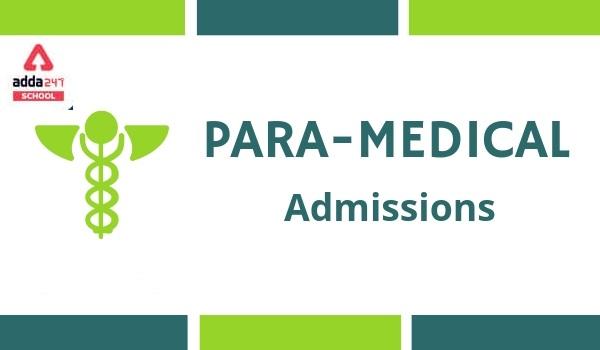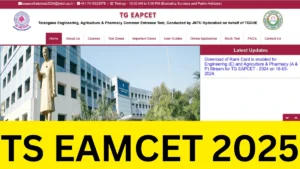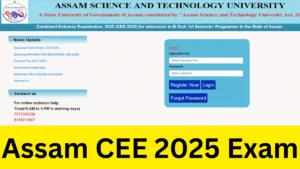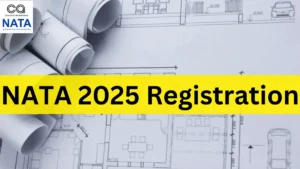Table of Contents
What is Paramedical Course?
A paramedical course is a course that can be considered to be job-oriented. It is a sector that mainly deals in accidents and emergencies. In the Health Care sector, there has been an increasing demand for paramedical course certificate holders (paramedics).
The course teaches and professionalizes the students to be professional healthcare workers. The healthcare industry has gone through rapid changes in recent years with the rising demand for healthcare workers.
Paramedical Courses
Paramedical courses are educational programs that prepare students for careers in the allied health sector. These professionals provide essential medical care and support to doctors and play a critical role in the healthcare system. Here’s an overview of some popular paramedical courses:
(a) Diploma in Medical Laboratory Technology (DMLT) (b) Bachelor of Physiotherapy (BPT) (c) Diploma in Radiology and Imaging Technology (d) Bachelor of Science in Nursing (B.Sc Nursing)
- Diploma in Medical Laboratory Technology (DMLT): This course trains students to work in medical laboratories. They learn to perform and analyze various clinical tests on body fluids, including blood, urine, and stool. Duration: Typically 2-3 years.
- Bachelor of Physiotherapy (BPT): This program focuses on physical therapy and rehabilitation. Students learn to help patients recover from injuries, surgeries, and illnesses through physical exercises and therapies. Duration: 4 years of study plus 6 months of mandatory internship.
- Diploma in Radiology and Imaging Technology: This course trains students in operating imaging equipment like X-rays, MRI, and CT scans. They learn about imaging techniques, patient care, and radiation safety. Duration: Usually 2-3 years.
- Bachelor of Science in Nursing (B.Sc Nursing): This course prepares students for a career in nursing. It covers various aspects of healthcare, including patient care, medicine, and healthcare management. Duration: 4 years.
These courses are available at various medical colleges and institutes across India. The eligibility criteria typically include a high school diploma, often with a focus on science subjects. Career prospects after these courses are diverse, with opportunities in hospitals, clinics, diagnostic labs, and rehabilitation centers. Additionally, graduates can also find employment in the education sector, research facilities, and healthcare administration.
Paramedical Courses After Class 12th
After completing class 12th, students interested in the paramedical field can choose from a variety of courses. These courses offer practical skills and theoretical knowledge in various aspects of healthcare. Here are some options:
(a) Bachelor of Physiotherapy (BPT) (b) Bachelor of Science in Nursing (B.Sc Nursing) (c) Bachelor of Science in Medical Laboratory Technology (B.Sc MLT) (d) Bachelor in Medical Radiology and Imaging Technology (BMRIT)
- Bachelor of Physiotherapy (BPT): This is a 4-year undergraduate program that teaches students about physical therapy techniques used to treat various injuries and physical disabilities. It includes subjects like anatomy, physiology, pathology, and pharmacology, followed by a mandatory internship.
- Bachelor of Science in Nursing (B.Sc Nursing): This 4-year undergraduate course prepares students for a nursing career. It covers subjects like medical-surgical nursing, community health nursing, psychiatry, and child health. Graduates are required to register with the State Nurse Registration Council to practice.
- Bachelor of Science in Medical Laboratory Technology (B.Sc MLT): This is typically a 3-year course focusing on the operation of laboratory equipment and the analysis of bodily fluids and tissues for diagnosis and treatment. Subjects include biochemistry, pathology, microbiology, and blood banking.
- Bachelor in Medical Radiology and Imaging Technology (BMRIT): This course, usually 3 to 4 years long, trains students in operating imaging technology like X-ray, CT scan, MRI, and ultrasound. It covers radiographic techniques, radiation physics, and patient care.
Paramedical Courses List
Paramedical courses offer a wide range of career options in the healthcare field, other than becoming doctors and nurses. These courses are crucial as they train healthcare technicians and assistants. Here’s a comprehensive list of paramedical courses available after completing class 12th, particularly for students with a science background:
- Bachelor of Physiotherapy (BPT)
- Bachelor of Science in Nursing (B.Sc Nursing)
- Bachelor of Science in Medical Laboratory Technology (B.Sc MLT)
- Bachelor in Medical Radiology and Imaging Technology (BMRIT)
- Diploma in Medical Laboratory Technology (DMLT)
- Diploma in Radiology and Imaging Technology
- Diploma in Operation Theatre Technology (OTT)
- Diploma in Dialysis Technology
- Bachelor of Science in Optometry (B.Sc Optometry)
- Bachelor of Science in Anesthesia Technology
- Diploma in ECG Technology
- Diploma in Medical Record Technology
- Diploma in Ophthalmic Technology
- Bachelor of Occupational Therapy
- Diploma in Sanitary Inspection
Eligibility Criteria for Paramedical Course after 12th
Eligibility for Paramedical Course programs.
- Students must have completed their Class 12th Boards from a recognized university
- Students must have completed 12th with biology as one of the subjects.
- Students must be at least 17 years for pursue Bachelor’s in Paramedic Course.
- The course is divided into – Diploma, Bachelors, and Masters. The eligibility depends upon the type of degree the students want to pursue.
Top Colleges for Paramedical Courses
The top 5 colleges students prefer for admission to Paramedical are:
- Chhatrapati Shivaji Maharaj University (CSMU), Navi Mumbai
- All India Institute of Medical Sciences (AIIMS)
- Christian Medical College, Vellore
- University College of Medical Sciences, University of Delhi
- Jawaharlal Institute of Post-Graduate Medical Education and Research
Admission Procedure for Paramedical Courses
The admission Procedure for Paramedical courses differs from college to college. few of colleges and universities conduct their entrance exams while yet others depend upon the Class 12th scores of the students.
Entrance Exams for Paramedical Courses
The most common entrance exams for paramedical courses are:
- NIPER Joint Entrance Exam
- AIIMS M.Sc and Biotechnology Entrance Exam
- Indian Army B.Sc Entrance Exam
- IPU CET
- AP EAMCET
Reference Books for Paramedical Courses
Reference Books for the Paramedical course have been listed below.
- Bihar Para Medical (Intermediate) Pravesh Pariksha
- Bihar Para Medical Matric Guide
- Diploma-Certificate Pravesh Partiyogita Pariksha Para-Medical
Syllabus for Paramedical Courses
We have listed the syllabus for the paramedical course.
Nursing Syllabus
- Medical-Surgical Nursing-I
- Anatomy and Physiology
- Nursing Foundation
- Mental Health Nursing
- Pharmacology, Pathology, and Genetics
- Communicational and Educational Technology
- Nursing Research and Statistics
- Child Health Nursing
MLT Syllabus
- Human Anatomy I
- Health Education & Health Communication
- Human Anatomy-I Lab
- Clinical Haematology-I
- Microbiology, Immunology & Serology – I Lab
- Human Physiology II
- Bio-Medical Waste Management
- Practical: Human Physiology-II
- Histopathology & Histotechniques –II
- Principles of Lab Management & Medical Ethics
Anesthesia Studies
- Human Anatomy
- Medicine relevant to Anesthesia Technology
- Pathology
- Biochemistry
- Anaesthesia Technology – Applied
- Introduction to Anesthesia Technology
- Environmental Science and Health
- Applied Pathology
Fees and Salary for Paramedical Courses
The fees for admission to the Paramedical Course vary from course to course. We have listed them according to the courses above in the article.
The starting salary for a Paramedical Course graduate is Rs. 2,20,000 – Rs.10,00,000
Job Roles for Paramedical Courses
Paramedical course certificate holders can opt for the following job roles after graduating.
- Physiotherapist
- Occupational Therapist
- Audiologist and Speech Therapist
- Radiographers





 TS EAMCET 2025 Registration Begins, Chec...
TS EAMCET 2025 Registration Begins, Chec...
 Assam CEE 2025: Registration Begins, Exa...
Assam CEE 2025: Registration Begins, Exa...
 NATA 2025: Registration (Begins), Exam D...
NATA 2025: Registration (Begins), Exam D...






